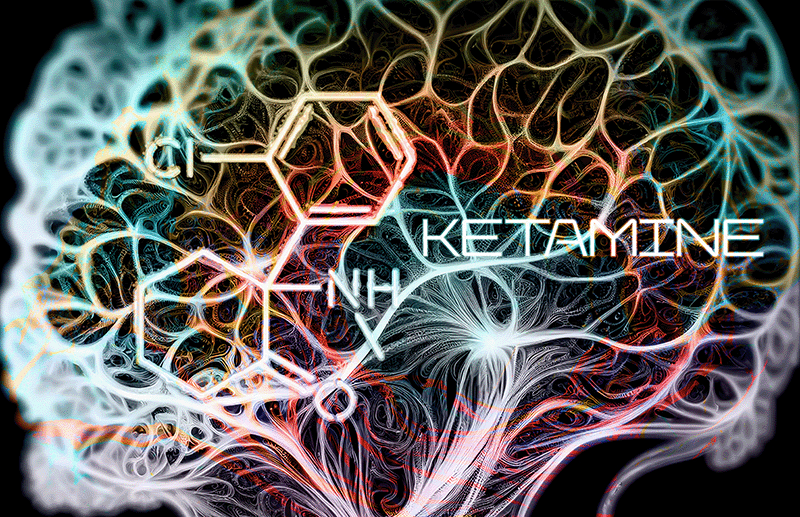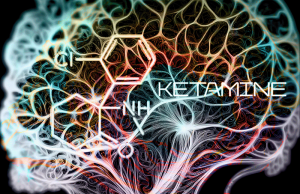Introduction
In the realm of mental health, the intersection of neuroscience and treatment is a rapidly evolving frontier. As our understanding of the brain deepens, so does our ability to develop more effective and targeted treatments for mental health disorders. This blog post will delve into the neurologic power of ketamine and psychedelics, exploring how these substances are reshaping our understanding of mental health treatment and how science is overtaking theory in this domain.
Historically, mental health treatment has been largely guided by theory. Therapeutic approaches were developed based on our understanding of human behavior and the mind, with less emphasis on the underlying neurobiology. However, with the advent of modern neuroscience and technologies that allow us to explore the brain in unprecedented detail, this is changing. We are now in a position to understand not just the psychological, but also the neurobiological mechanisms underlying mental health disorders, and to develop treatments that directly target these mechanisms.
Ketamine and psychedelics are at the forefront of this shift. These substances, which have profound effects on the brain and consciousness, are providing unique insights into the neurobiology of mental health disorders and opening up new avenues for treatment. In the following sections, we’ll explore the neuroscience of ketamine and psychedelics, how this is challenging traditional theories of mental health treatment, and the potential of these substances to transform the landscape of mental health care.
The Neuroscience of Ketamine and Psychedelics
Ketamine and psychedelics are powerful substances that have profound effects on the brain. Understanding these effects is key to harnessing their therapeutic potential and to advancing our understanding of mental health disorders.
Ketamine is a dissociative anesthetic that has been found to have rapid-acting antidepressant effects. It works primarily by blocking the NMDA receptor, a type of receptor for the neurotransmitter glutamate, which is involved in learning and memory. This leads to an increase in the release of another neurotransmitter, BDNF (brain-derived neurotrophic factor), which promotes the growth and survival of neurons and is thought to play a key role in ketamine’s antidepressant effects.
Psychedelics, a group of substances that includes LSD, psilocybin, and MDMA, primarily affect the serotonin system. They bind to and activate a specific type of serotonin receptor, known as the 5-HT2A receptor, which is thought to lead to the profound changes in consciousness and perception that these substances can induce.
These effects are supported by a growing body of scientific evidence. For example, a study published in the journal “Nature” found that ketamine rapidly increased the number of synaptic connections in the prefrontal cortex, a brain region involved in mood regulation. Similarly, a study published in the “Journal of Psychopharmacology” found that psilocybin increased brain connectivity and induced a state of ‘unconstrained’ cognition, characterized by increased flexibility and creativity.
These findings not only shed light on the neurobiological mechanisms underlying the effects of ketamine and psychedelics, but also provide insights into the neurobiology of mental health disorders. For example, they suggest that depression may be associated with reduced synaptic connectivity, and that enhancing this connectivity could be a promising therapeutic approach.
In the next section, we’ll explore how these findings are challenging traditional theories of mental health treatment, and how science is overtaking theory in the realm of mental health care.
From Theory to Science: A Paradigm Shift
The field of mental health has historically been guided by theory. From Freud’s psychoanalytic theory to the cognitive-behavioral models of the late 20th century, our understanding of mental health disorders and their treatment has been largely based on theoretical frameworks that seek to explain human behavior and the mind.
While these theories have provided valuable insights and have guided the development of effective treatments, they have their limitations. They often rely on subjective interpretations and can lack precision, making it difficult to predict who will respond to a particular treatment or why a treatment works.
However, with the advent of modern neuroscience and technologies that allow us to explore the brain in unprecedented detail, this is changing. We are now in a position to understand not just the psychological, but also the neurobiological mechanisms underlying mental health disorders, and to develop treatments that directly target these mechanisms.
This represents a paradigm shift in mental health treatment, from theory to science. Instead of relying on theoretical models, we can now base our treatments on a solid understanding of brain function and how it is altered in mental health disorders.
The neuroscience of ketamine and psychedelics is at the forefront of this shift. As we’ve seen, these substances have profound effects on the brain, providing unique insights into the neurobiology of mental health disorders. They are challenging traditional theories of mental health treatment, suggesting that disorders like depression may be associated with specific neurobiological abnormalities that can be targeted with novel treatments.
In the next section, we’ll explore the potential of these scientific advancements to transform mental health treatment, and how ketamine and psychedelic therapies could play a pivotal role in this transformation.
The Power of Ketamine and Psychedelics in Treatment
The neurobiological insights provided by ketamine and psychedelics are not just of academic interest; they have profound implications for the treatment of mental health disorders. These substances have been found to be effective for a range of conditions, offering hope to individuals who have not found relief through traditional treatments.
Ketamine, for example, has been found to have rapid-acting antidepressant effects, even in individuals with treatment-resistant depression. This is thought to occur through its effects on the glutamate system and its ability to enhance synaptic connectivity, suggesting a novel approach to treating depression that goes beyond the traditional focus on monoamine neurotransmitters like serotonin and norepinephrine.
Psychedelics, too, have shown promise in the treatment of mental health disorders. Psilocybin, for example, has been found to be effective in treating depression and anxiety, particularly in individuals with life-threatening illnesses. MDMA has shown promise in the treatment of PTSD, with studies suggesting that it can enhance the effectiveness of psychotherapy by fostering a sense of safety and promoting emotional processing.
These findings are supported by numerous case studies and personal stories. For example, consider the case of a woman with severe, treatment-resistant depression who experienced a rapid and sustained improvement in her symptoms after receiving ketamine therapy. Or the case of a veteran with PTSD who, after years of unsuccessful treatments, found relief through MDMA-assisted psychotherapy.
These stories highlight the power of ketamine and psychedelic therapies, and their potential to transform mental health treatment. However, while the potential benefits of these therapies are significant, they also come with potential risks and considerations, which we’ll explore in the next section.
The Future of Mental Health Treatment
Looking to the future, it’s clear that ketamine and psychedelic therapies have the potential to play a pivotal role in shaping the landscape of mental health care. By providing novel insights into the neurobiology of mental health disorders and offering new avenues for treatment, these therapies represent a significant advancement in our ability to understand and treat these conditions.
One of the ways these therapies could shape the future of mental health care is by offering more effective treatments for conditions that are often resistant to traditional therapies. As we’ve seen, both ketamine and psychedelics have been found to be effective for a range of conditions, including treatment-resistant depression and PTSD. This could significantly improve outcomes for many individuals, offering hope to those who have not found relief through traditional treatments.
These therapies also offer a more holistic approach to mental health care. Rather than simply targeting symptoms, they aim to facilitate profound psychological change, fostering self-discovery, personal growth, and improved mental health. This represents a shift away from the ‘one-size-fits-all’ approach of traditional treatments, towards a more personalized and comprehensive approach to care.
However, while the potential benefits of these therapies are significant, they also come with potential risks and considerations. These substances can induce intense and sometimes distressing experiences, and their use should be carefully monitored by trained professionals. Furthermore, they are not suitable for everyone, and their use should be considered in the context of an individual’s overall mental health and medical history.
The neurologic power of ketamine and psychedelics offers a promising new avenue for mental health treatment. By harnessing the power of these substances, we have the opportunity to transform the landscape of mental health care, offering more effective, personalized, and holistic treatments. However, realizing this potential will require further research, careful regulation, and an open-minded approach to these novel therapies.



